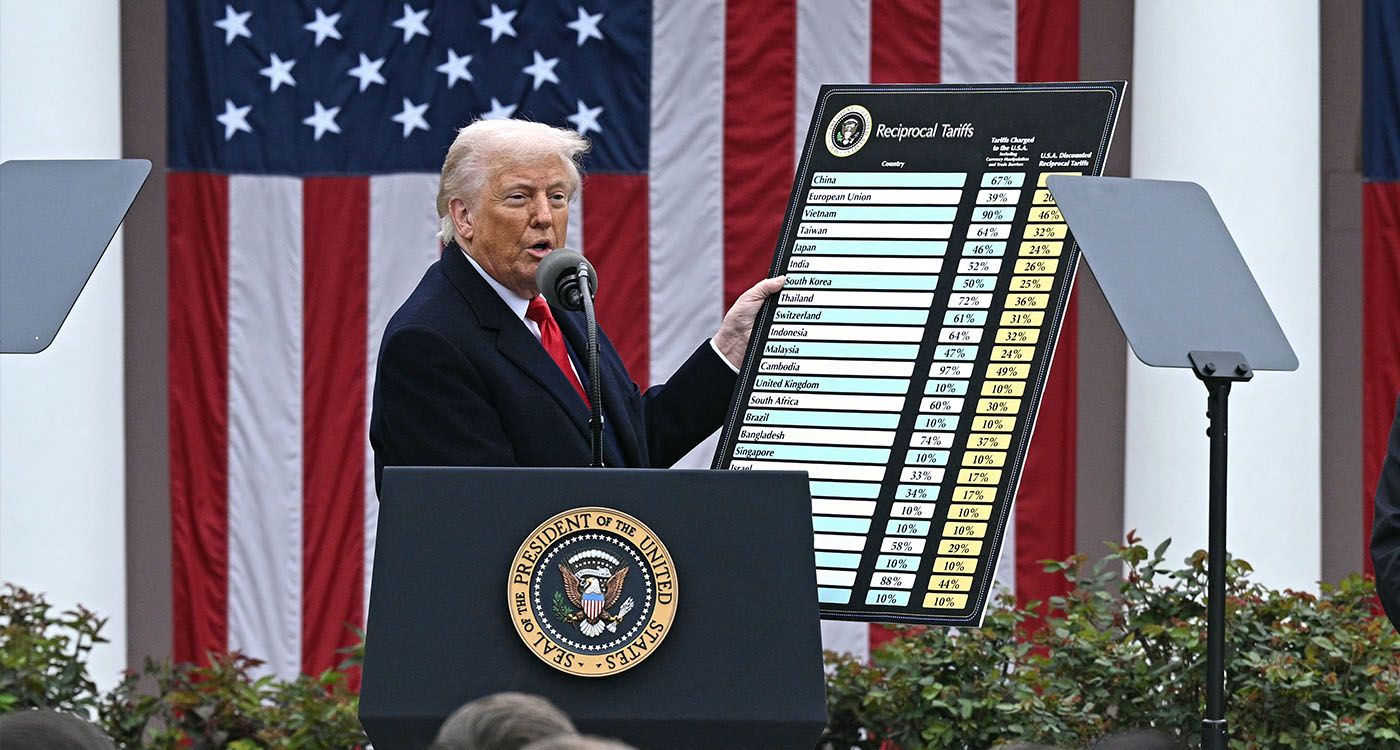- Home
- Middle East
- Trump’s Tariff Disruption: Chaos or Strategy?

© Brendan SMIALOWSKI / AFP
In the age of globalization, few leaders have dared to question the structure that underpins the modern world economy. Donald Trump didn’t just question it, he took a wrecking ball to it. His tariff-first economic approach, widely criticized as reckless, may actually represent the beginning of a hard but necessary conversation: Should America keep playing the role of the world’s consumer, or is it time to rebuild itself as a producer?
Let’s break this down:
Trump’s tariffs weren’t just aimed at making imports more expensive. They were designed to rewrite the rules of the global economy—one in which America’s industrial base had slowly eroded while countries like China built state-sponsored manufacturing giants.
What Trump and his economic advisors, including Scott Bessent and Steven Murren, understood is that globalization wasn’t working for the American worker anymore. Bessent, a seasoned investor who once worked under George Soros and famously helped the Quantum Fund bet against the Bank of England in 1992 —“Black Wednesday”—knows how global capital flows can upend national economies. That experience shaped his understanding of financial vulnerability, and of when a system needs to be challenged.
Together with Murren, a hedge fund manager and economic strategist, Trump’s team sought to flip the script: use America’s massive consumer market as leverage. If the US stopped buying, the world would listen.
For decades, the US economy has been driven by consumption—nearly 70% of GDP. Americans buy, the rest of the world makes. That might seem fine in the short term, but it has long-term costs: job losses, industrial decay and rising dependence on geopolitical rivals for critical goods.
Trump’s central argument is that a nation can’t be a secure and sovereign if it can’t make its own steel, semiconductors or medicine. The COVID-19 pandemic later made this painfully clear, when China controlled most of the world’s supply of masks, pharmaceuticals and rare earth metals.
Thus, when Trump slapped tariffs on everything from Chinese electronics to Canadian aluminum, he wasn’t just playing populist politics. He was sending a message that America must start producing again, not just consuming.
But is he saving America or crashing It? This is where things get complicated.
Yes, tariffs cause short-term pain. They raise prices and can trigger trade wars. American farmers took a hit, supply chains groaned, Wall Street shuddered, and in the heat of it all, Trump looked like a bull in a China shop—literally and figuratively.
But here’s the counterpoint: sometimes, you need to break the machine to fix it.
Scott Bessent and Steven Murren aren’t economic amateurs. They believe that the US has become too dependent on a fragile, just-in-time global economy and that tariffs are the shock therapy needed to jolt America back to its manufacturing roots.
This isn’t protectionism for the sake of it, it’s strategic decoupling. It’s saying we can’t outsource everything and expect to remain a superpower.
Most traditional economists warned against Trump’s approach. The IMF, WTO and mainstream academia all cautioned that tariffs would shrink global trade and hurt growth. They are right in the short run. But if Trump’s goal is to sacrifice short-term gain for long-term sovereignty, then we’re judging the policy too early.
Think of it like this: when Bessent helped Soros bet against the pound, it wasn’t because he hated the British economy, but because he knew the system was unsustainable. That’s the same lens he’s now applying to US trade.
What’s the bigger picture?
Trump’s tariffs may never be “popular.” They’re painful, noisy and clumsy, but they forced a reckoning. They questioned the premise that America could be a consumer forever while the rest of the world made the goods. That’s not just unsustainable, it’s dangerous.
Whether Trump is the right messenger is up for debate. But the message itself? It’s resonating far beyond MAGA rallies.
Both parties are now talking about restoring industrial policy and strategic independence. That’s not coincidence, it’s legacy.
So, is Trump saving America or crashing it? Maybe he’s doing both, crashing the old order and trying to save what comes next.
Read more




Comments